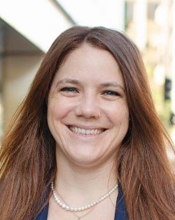Mar. 11, 2021 |
Dr. Rajeswari Rajagopalan, a leading Indian expert on space security, will discuss India’s evolving approach to space and its strategy to address the domain’s changing security dynamics. Ankit Panda from the Carnegie Endowment for International Peace, Aaron Bateman from Johns Hopkins University, and Dr. Nancy Hayden of Sandia National Laboratories will serve on a panel moderated by the CMC’s South Asia program lead, Hannah Haegeland. This is the first of a three-seminar series focused on strategic stability and cooperative security in South Asia.
A recording of this seminar can be viewed here.
Once an exclusive domain, today an increasingly diverse group of stakeholders utilizes outer space. Current and aspirant space-faring states pursue capabilities that enhance security, economic growth, and quality of life in an environment characterized by heightened competition. The CMC is hosting Dr. Raji Rajagopalan, a leading Indian expert on space security, to discuss India’s evolving approach to outer space and its strategy to address the domain’s changing security dynamics. Ankit Panda from the Carnegie Endowment for International Peace, Aaron Bateman from Johns Hopkins University, and Dr. Nancy Hayden of Sandia National Laboratories will serve on a panel moderated by the CMC’s South Asia program lead, Hannah Haegeland. The panel will respond to Dr. Rajagopalan’s remarks and discuss Indian and U.S. perspectives on the future of space security, space competition amongst Indo-Pacific countries, implications for interstate crisis signaling and escalation, and the prospects for advancing international space norms that promote strategic stability and cooperative security.
Participation in this online event is limited, but it will be recorded for later viewing. Please register by 5:00 pm MST on March 10 to receive a link to the online meeting. Email CMC@sandia.gov with questions for the speaker before or during the event, or with questions about the event.
Speaker

Dr. Rajeswari Pillai Rajagopalan (@raji143) is a Distinguished Fellow & Head of the Nuclear and Space Policy Initiative, at Observer Research Foundation. She is also the senior Asia defence writer for The Diplomat. Dr. Rajagopalan joined ORF after a five-year stint at the National Security Council Secretariat (2003-2007), where she was an Assistant Director. Prior to joining the NSCS, she was Research Officer at the Institute of Defence Studies and Analyses, New Delhi. She was also a Visiting Professor at the Graduate Institute of International Politics, National Chung Hsing University, Taichung, Taiwan in 2012. Her analysis has appeared in a variety of academic and policy outlets and she is the author of four books: Nuclear Security in India (2015), Clashing Titans: Military Strategy and Insecurity among Asian Great Powers (2012), The Dragon’s Fire: Chinese Military Strategy and Its Implications for Asia (2009), and Uncertain Eagle: US Military Strategy in Asia (2009). She has also co-authored and edited five other books, including Space Policy 2.0: Commerce, Policy, Security and Governance Perspectives (2017); Nuclear Security in India (Second Edition) (2016); Iran Nuclear Deal: Implications of the Framework Agreement (2015). Dr. Rajagopalan has lectured at Indian military and policy institutions such as the Defence Service and Staff College (Wellington), National Defence College (New Delhi), Army War College (Mhow), and the Foreign Service Institute (New Delhi). She has also been invited to speak at international fora including the UN COPUOS (Vienna), Conference on Disarmament (Geneva), UNIDIR (Geneva), ASEAN Regional Forum (ARF) and the European Union.
Panelists

Ankit Panda (@nktpnd) is the Stanton Senior Fellow in the Nuclear Policy Program at the Carnegie Endowment for International Peace. An expert on the Asia-Pacific region, his research interests range from nuclear strategy, arms control, missile defense, nonproliferation, emerging technologies, and U.S. extended deterrence. A widely published writer in global periodicals and scholarly journals, Mr. Panda is the author of Kim Jong Un and the Bomb: Survival and Deterrence in North Korea (Hurst Publishers/Oxford University Press, 2020). Mr. Panda was previously an adjunct senior fellow in the Defense Posture Project at the Federation of American Scientists (FAS) and a member of the 2019 FAS International Study Group on North Korea Policy. He has consulted for the United Nations in New York and Geneva on nonproliferation and disarmament matters, and has testified on security topics related to South Korea and Japan before the congressionally chartered U.S.-China Economic and Security Review Commission. Mr. Panda was a Korea Society Kim Koo Fellow, a German Marshall Fund Young Strategist, an International Institute for Strategic Studies (IISS) Shangri-La Dialogue Young Leader, and a Carnegie Council on Ethics in International Affairs New Leader. He has worked at the Council on Foreign Relations and the Liechtenstein Institute on Self-Determination at the Princeton School of Public and International Affairs.

Aaron Bateman (@aaronbateman22) is a PhD student in the history of science and technology at Johns Hopkins University. His research uses recently declassified documents to investigate the U.S. pursuit of anti-satellite weapons and space-based missile defense and its consequences for both arms control and transatlantic security. Prior to graduate school, Mr. Bateman served as a U.S. Air Force intelligence officer with assignments at the National Security Agency and the Pentagon. He led an inter-agency effort to improve the ability of the Department of Defense and the Intelligence Community to evaluate and respond to space threats. In addition to his academic work, Mr. Bateman provides subject matter expertise on national security space issues for the U.S. Government. His policy commentary on space security has appeared in War on the Rocks, The Hill, and Bulletin of the Atomic Scientists.

Dr. Nancy K. Hayden is a Distinguished Member of the Technical Staff at Sandia National Laboratories, where she leads strategic foresight and decision analysis on how policy and technology developments in disruptive fields – such as Artificial Intelligence and Space Systems – will impact human security and global stability. Dr. Hayden is an expert on the science of complex systems and peace engineering in international security and conflict settings. Over the course of her 35-year career at Sandia, she has lead U.S. and international teams for nuclear safety and waste management, nuclear nonproliferation, and countering Weapons of Mass Destruction. Driven by a commitment to advancing the power of women to change the world, Dr. Hayden’s passion is applying systems thinking and fielding innovations to transform conflict-ridden societies from local to global levels.
Moderator

Hannah Haegeland (@HHaegeland) is a Senior Member of the Technical Staff at Sandia National Laboratories with expertise in Indian Ocean Region and South Asian regional security, nuclear issues, interstate crises, and risk reduction. She manages South Asia engagement for Sandia’s CMC, promoting global security in the 21st century through scientific engagement. In this capacity, Ms. Haegeland convenes Track 1.5 and Track 2 engagements, designs and facilitates wargames and tabletop exercises, leads cooperative research studies between the CMC and partner countries, and supports Sandia training workshops, courses, and laboratory visits. Her recent research focuses on cyber and emerging technology-enabled escalation in Southern Asia and prospects for cooperative risk reduction measures. Ms. Haegeland is a co-editor and author of Investigating Crises: South Asia’s Lessons, Evolving Dynamics, and Trajectories (Stimson, 2018) and her analysis has been featured in a variety of policy outlets including Foreign Affairs and the Bulletin of Atomic Scientists. Prior to joining Sandia, Ms. Haegeland held research and teaching positions in Kathmandu, New Delhi, and Washington, D.C.